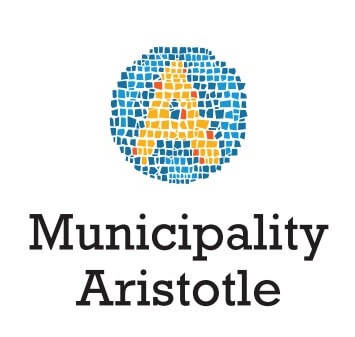In Aristotle’s early dialogues, we find Gryllus or On Rhetoric and Eudemus or On the Soul. During the same period, we also find Protrepticus, which urged a life dedicated to philosophy and was particularly popular in antiquity.
Later dialogues include On Philosophy, where the progress of humanity is described, and works such as Alexander or On Colonization and On Kingship. However, for some dialogues, we only know their titles: On Justice, On Poets, On Wealth, On Prayer, On Pleasure, On Nobility, On Education, Erotic, Nerithus. The surviving treatises are categorized into groups named after the scientific fields they address.
- The group of treatises on logic, known since the 6th century BCE, is called Organon, meaning “tool” of philosophy. These works examine problems of logic, the science that studies thought and its mechanisms. The first of these works is Categories (revised by later scholars after Aristotle), whose authenticity has been questioned without convincing arguments. On Interpretation, which includes the theory of propositions, has also been debated, but its language and content confirm its authenticity. The authenticity of Prior Analytics, Posterior Analytics, Topics, and Sophistical Refutations is unquestionable.
- The treatises on nature explore issues of physics, the branch dealing with the general theory of the natural world. This group of unquestionably authentic works includes Physics (Lectures on Physics), On the Heavens, On Generation and Corruption, and Meteorology. The next work in the Corpus, On the Cosmos, is certainly not by Aristotle, as it was written between 50 BCE and 100 CE.
- The treatises on psychology address issues of psychology, the science concerned with the soul. These include On the Soul and a group of works known as Minor Natural Works. These are On Sensation and Sensibles, On Memory and Recollection, On Sleep, On Wakefulness, On Divination in Sleep, On Longevity and Shortness of Life, On Life and Death, and On Respiration. On Spirit, which concludes the series of psychological works, does not belong to Aristotle, as it was written around 250 BCE and describes the teachings of Erasistratus.
- A group of biological works follows. From the first treatise in this series, History of Animals, some books are not authentic and date to the 3rd century BCE. On the Parts of Animals serves as a general introduction to biology. On the Movement of Animals was once considered spurious, but recent studies have overturned this view. Finally, On the Progression of Animals and On the Generation of Animals are genuine works of Aristotle.
- Some treatises are spurious. Specifically, On Things Heard likely belongs to Straton, while On Colors to Theophrastus. Physiognomics, which combines elements of the two preceding works, is probably attributed to Peripatetics. Spurious works also include On Plants, while On Marvellous Things Heard contains excerpts from works by Theophrastus and other authors.
- Mechanics is likely the work of a philosopher from the early Peripatetic school. Problems contains elements pointing to the late Peripatetic school and derives mainly from Theophrastus’ Corpus and texts from the Hippocratic school. Musical Problems dates between 300 BCE and 100 CE. On Indivisible Lines is not much later than the time of Xenocrates, Positions and Names of Winds is an excerpt from Theophrastus’ treatise On Signs, while On Xenophanes, Zeno, Gorgias (more correctly On Melissus, Xenophanes, and Gorgias) is based on genuine Aristotle writings but was written in the 1st century CE.
- Regarding Metaphysics, the earliest reference is found in Nicolaus of Damascus. This work examines metaphysical or ontological issues, the branch dealing with the essence of things. According to Hesychius’ catalog, this treatise consisted of ten books; hence, of the twelve preserved, some are pseudepigrapha. To the twelve books of Metaphysics, scholars often add the dissertation On Melissus, Xenophanes, and Gorgias.
- The treatises on ethics, which deal with the rules of human actions, include Nicomachean Ethics, Magna Moralia, and Eudemian Ethics. Many argue that Eudemian Ethics is a later work written by Aristotle’s student Eudemus; however, this is unlikely. Its grammar and style are Aristotelian, and it is probably a very early work written by Aristotle while in Assos, between 348 and 345 BCE. On Virtues and Vices was written between the 1st BCE and the 1st CE century and attempts to reconcile Peripatetic ethics with Platonic.
- Politics is undoubtedly a genuine work by Aristotle, consisting of several self-contained essays that are not fully processed. This treatise examines problems of political philosophy, the branch dealing with theories of governance, legislation, and other institutions and phenomena of political life.
- The first book of Economics is a treatise based on Politics and Xenophon’s Oeconomicus, likely written by Theophrastus or another Peripatetic. The second book dates to 30 BCE and is a collection of historical events given as examples. The third book survives in a Latin translation and does not belong to Aristotle.
- Rhetoric and Poetics are among the treatises on aesthetics, the branch dealing with the theory of the structure of works of art. Rhetoric is certainly the work of the great philosopher—at least the first two books—and deals with the structure of speech. Rhetoric to Alexander was attributed to Anaximenes of Lampsacus, but its character suggests Aristotle. The Aristotelian Corpus concludes with Poetics, preserved in fragments, whose authenticity is undisputed. Poetics focuses on ancient poetic discourse and its genres.
From Aristotle’s lost works, particularly significant is the description of the constitutions of 158 Greek cities. In 1890, a papyrus was discovered in Egypt, containing the first of these, the Constitution of the Athenians.
Info
In On the Parts of Animals, Aristotle primarily addresses the structure of living organisms. He argues that in animal bodies, blood holds a primary position, constituting all parts, the heart is the center, while the brain is the coldest part of the body, regulating the heat generated by the heart. He then categorizes animals based on shared characteristics into those with blood (vertebrates) and those without blood (invertebrates). Among these, the highest rank is given to viviparous animals (those that give birth to live young), followed by oviparous animals, which are further divided into those that lay perfect eggs and those laying imperfect eggs. Humans belong to a distinct species, with some intermediate species also identified.
The Scala naturae according to Aristotle (Source: W.D. Ross Aristotle, MIET publications):
BIBLIOGRAPHY
– Aristotle, W. D. Ross, MIET publications
– Aristotle’s Poetics, I. Sykoutris, Estia publications
– Ancient Greek Literature, “The Greeks,” Aristotle Complete Works, Kaktos publications
– Papyros Larousse Britannica Encyclopedia, vol. 11
– Philosophy, Vol. A, From Plato to Thomas Aquinas, edited by François Chatelet, Gnosis publications
– History of Ancient Greek Literature, Albin Lesky, Kyriakidis brothers publications
– History of Ancient Greek Literature, P.E. Esterling–B.M.W. Knox, Papadimas publications
– History of Ancient Philosophy, Mario Vegetti, P. Travlos
– Great Greek Encyclopedia, vol. E
– Aristotle and the Lyceum, Jean Brun, Daedalos I. Zacharopoulos publications
– The Greek Philosophers, W. K. C. Guthrie, Papadimas publications
– On Politics – Selected Texts of Ancient Greek Literature, Konstantinos I. Despotopoulos, MIET publications
– Philosophical Texts for the Third Grade of Middle School, OEDB



